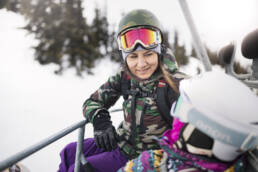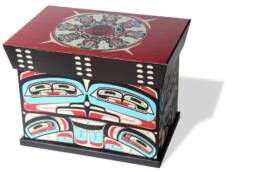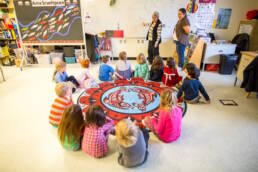Chelsie McCutcheon has seen poverty, addiction, and familial dysfunction. She is a shredder with spirit bridging the gap between kids and communities, on snow and soil. By Danielle Baker.
When Chelsie McCutcheon’s teenage parents brought her home from the hospital in an apple box, they could have easily continued the party lifestyle so readily available to them. Instead, they pursued sobriety. They also made a conscious effort to raise an active daughter who was healthy and connected to the outdoors. Now McCutcheon, who is a member of the Wet’suwet’en Nation, is using outdoor recreation as a holistic tool for positive social change in First Nation communities.
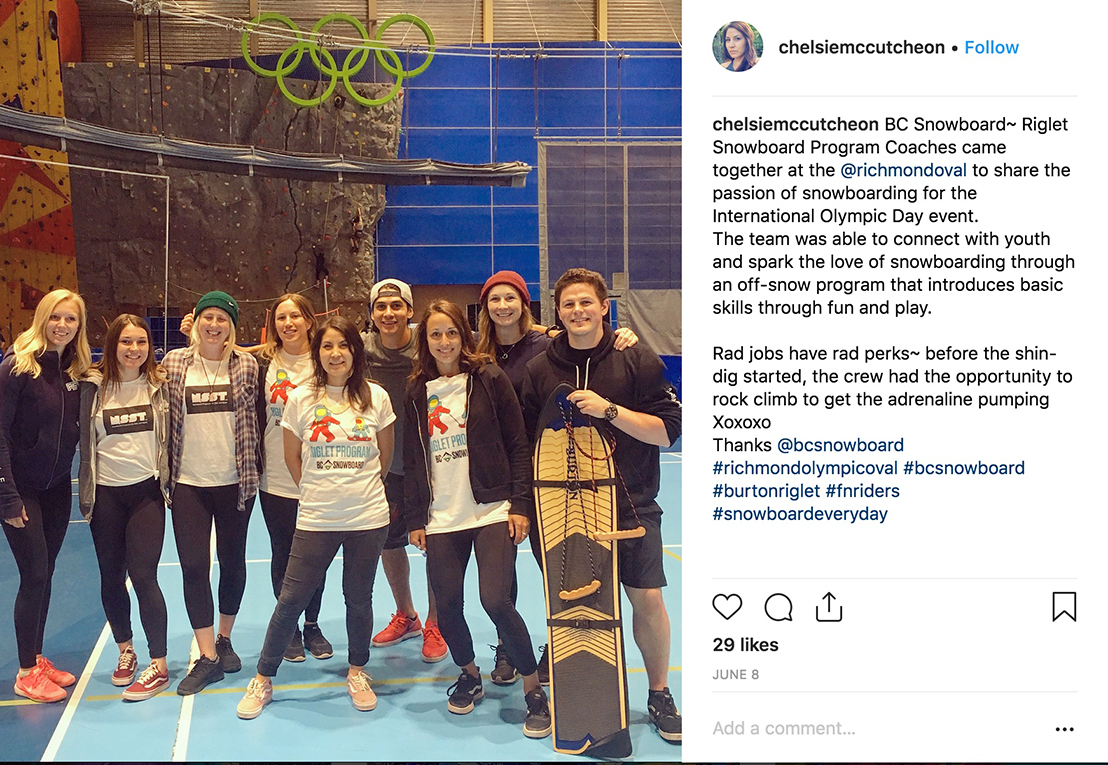
“My family worked hard to ‘fake it’,” McCutcheon says of the gear she had for skiing as a kid growing up in poverty. It took everything her family had to be able to afford her lessons. Reflecting back, she says that it made her realize that “it’s not the skis, it’s the rider.” Rather than focusing on what she didn’t have, McCutcheon pushed her athletic ability and excelled.
Early on, McCutcheon transitioned from skiing to snowboarding and has been a member and leader of the First Nations Snowboard Association since 2005. She also earned a spot on the BC Snowboard Team in 2010. After the birth of her first child, she worked hard to return to competition but suffered a major concussion. She then spent a number of years living in Alberta, away from sports, where she had her second child. But McCutcheon was drawn back to the mountains, and she moved to Squamish, British Columbia, where she now resides with her family.
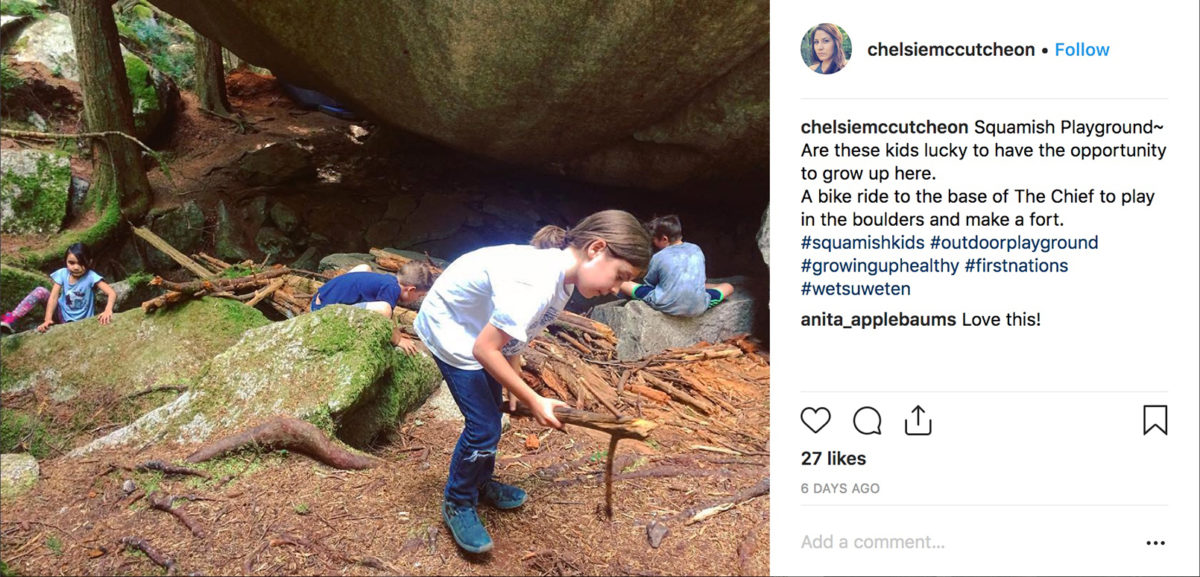
With her husband’s encouragement and support, McCutcheon has spent the last year pursuing her passions to connect with Indigenous people in a healing way. In 2017, she received a scholarship to complete her teacher training at the Shamanic Yoga Institute. The same year, with guidance from the Aboriginal Youth Mountain Bike Program, she obtained her Professional Mountain Bike Instructors Level 1 certification and completed training in first aid. She spent this past summer working as a guide for Whistler Blackcomb and Tyax Adventures and sharing her knowledge with the Witset youth in Smithers, British Columbia, where she grew up. “I want to bridge First Nations communities with local businesses and communities and to pursue outdoor recreation as a holistic tool and as a career path for First Nations youth.”
McCutcheon has witnessed the intergenerational impact of residential schools and has seen the resulting dysfunction within her own family. Here, she sees an opportunity to use her experience to help the healing process. “I woke up early to snowboarding,” she says, “and that really helped me to not party or get stuck in an unhealthy cycle.”
Her goal is to expand her abilities to bring yoga, mountain biking, and snowboarding to more Indigenous communities, both locally and internationally. She is acutely aware that similar cycles of dysfunction exist for Indigenous people all over the world, and she hopes that the direction she is taking will empower other communities to act. “We are not the only ones.”
Related Stories
What The Grateful Dead & An Indigenous BC Artist Have In Common
Canada's most celebrated indigenous designer. America's original counterculture super-band. Coast Mountain Culture…
Can Words Save Our World? An In-depth Look At Indigenous Languages
Of an estimated 7,000 languages spoken around the world, only 25 of them are considered dominant. A new school of…


